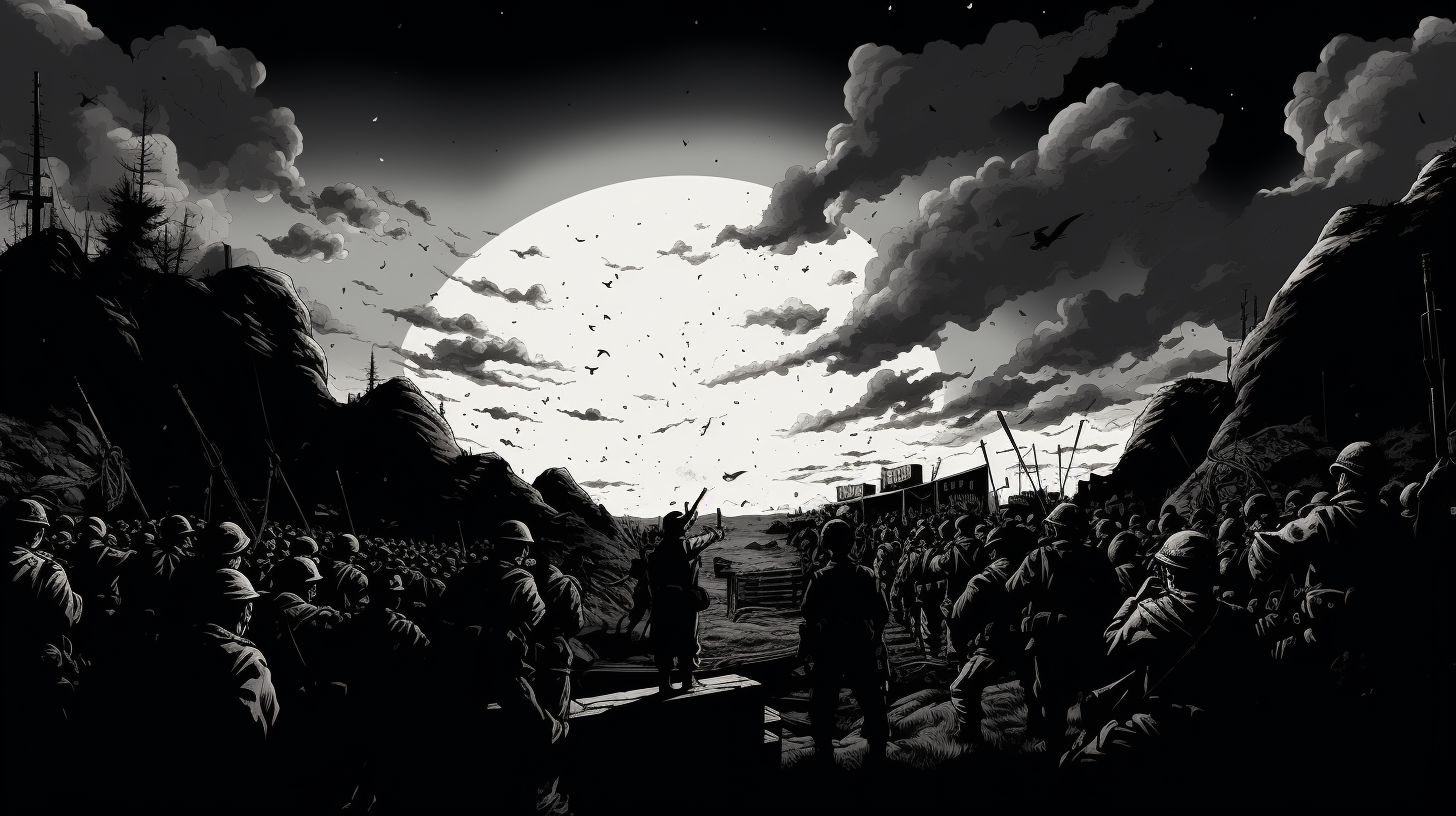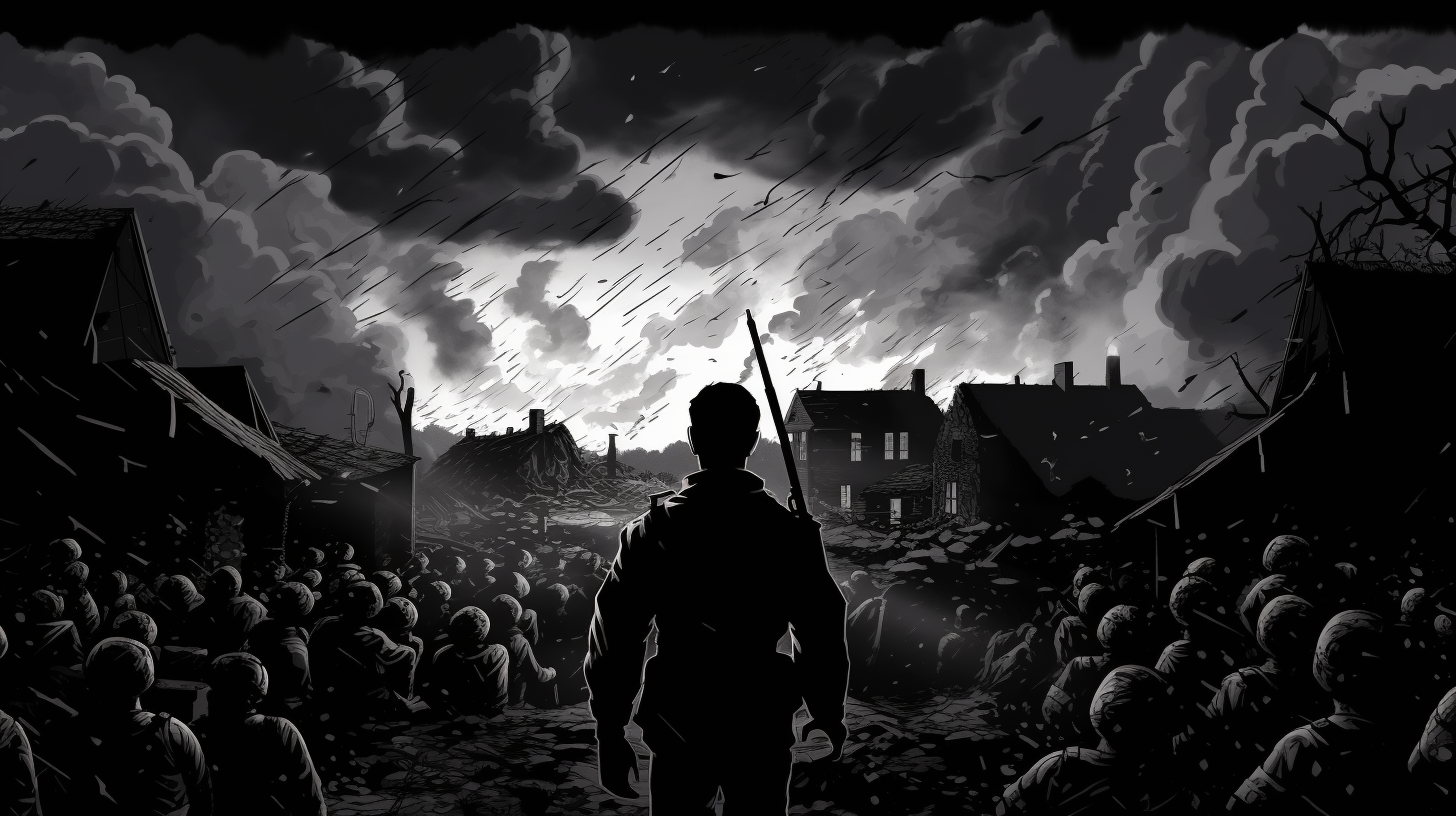It shaped the theory into the multi-dimensional framework we understand today. Through these collective inputs, the Just War Theory strives to provide a comprehensive ethical guide for the intricacies of warfare.
Criteria of Just War Theory
The Just War Theory doesn’t provide a simple checklist but outlines specific criteria for a war to be just. Let’s break them down:
- Jus ad Bellum (Right to War): This is all about the reasons for going to war. The cause should be just, like defending against aggression or righting a wrong. There should also be a genuine intention to achieve peace, not just power or territory.
- Jus in Bello (Right in War): Once in war, there are rules. It’s not a free-for-all. There should be discrimination between combatants and non-combatants. In simpler terms? Civilians are off-limits. Additionally, the force used should be proportionate; no overkill.
- Jus post-Bellum (Justice after War): Once the smoke clears, there’s the aftermath to consider. Ensuring a fair peace and rehabilitation is crucial.
Modern Implications of the Theory
The Just War Theory doesn’t anchor solely to the past. Its principles resonate deeply in today’s ever-evolving conflict landscape.
Consider the rise of drone warfare. While drones minimize the risk to pilots, they also raise questions about accountability and the potential for collateral damage. Can a drone strike truly meet the “discrimination” criteria of the Just War Theory, which emphasizes protecting civilians?
Similarly, the realm of cyber warfare has introduced a new battlefield. State-sponsored cyber attacks can cripple infrastructure, disrupt economies, and influence elections.
Here, the lines between combatants and non-combatants blur, making traditional Just War Theory parameters a topic of debate.
Biochemical weapons present yet another challenge. The Geneva Protocol of 1925 and the Chemical Weapons Convention of 1993 prohibit the use of chemical weapons, reflecting the world’s collective agreement on their inhumane nature.
But how does the Just War Theory guide our response when they’re suspected to be used, like in the Syrian Civil War?
And we haven’t even touched on nuclear deterrence. Here, the sheer scale of potential destruction forces us to reevaluate the “proportionality” aspect of the Just War Theory.
A Tool for Moral Guidance

At its core, the Just War Theory is about morality. It’s a tool that helps nations and leaders navigate the murky waters of conflict. It ensures that the wayside doesn’t leave the ethics of war.
It might not provide all the answers for the modern world. However, it lays a foundation for building contemporary discussions about war.
War isn’t black and white. It’s a complex, multi-faceted issue, and the Just War Theory helps clarify. Understanding it provides valuable insight into the ethics of conflict and the ongoing quest for a more just world.











COMMENTS